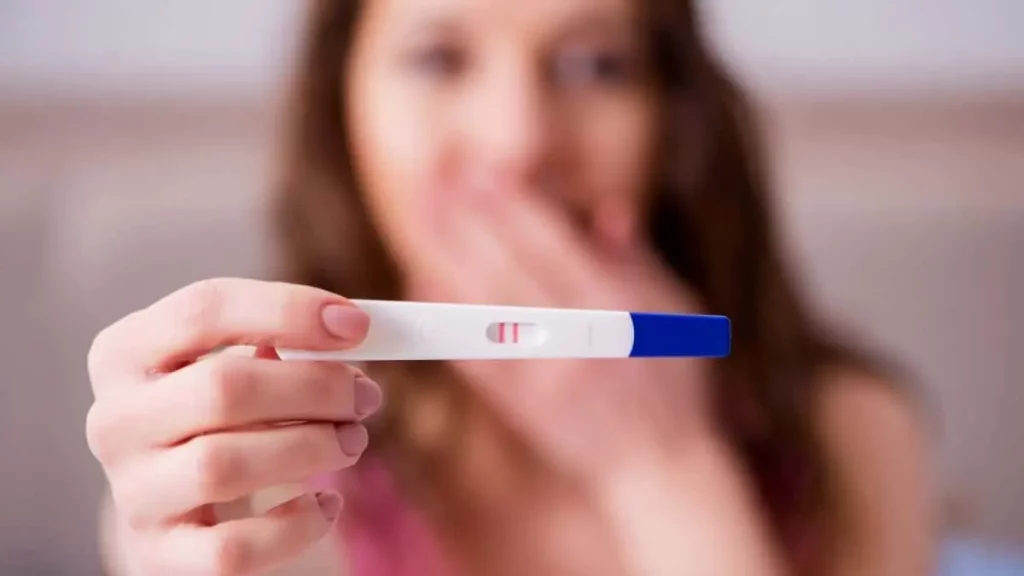The journey from conception to motherhood is an exciting journey, filled with anticipation and often a hint of anxiety. The first step on this journey, confirming a pregnancy, is a moment that can be both exciting and tense, and modernity brings us several digital tools to help at this moment. Through technology, we now have applications that promise to offer a preliminary result, even before carrying out a conventional pregnancy test.
These apps, which provide online pregnancy tests and other related tools, have been gaining popularity, especially due to their convenience and ease of access. In this article, we will navigate the universe of online pregnancy test apps, exploring their features, benefits, and possible challenges, to better understand how they integrate into the experience of the potential mother-to-be.
The Digital Influence on the Pregnancy Experience
Online pregnancy test apps have become an interesting phenomenon, providing a means for women to explore and understand their pregnancy-related experiences and symptoms in a more instantaneous way. These apps generally ask users to enter information about their menstrual cycles, symptoms and other variables to calculate the probability of pregnancy.
Pregnancy Test & Tracker App
This app is a pioneering example that offers users the opportunity to record and monitor pregnancy symptoms, as well as providing tools to interpret home pregnancy tests. With features including fertile period reminders and health tips, the “Pregnancy Test & Tracker App” serves as a comprehensive resource for women who suspect they are pregnant and are looking for early guidance.
First Response™ Pregnancy PRO Digital Pregnancy Test & App
An innovation in the field of pregnancy tests, this app works in conjunction with a First Response brand digital pregnancy test. It not only interprets the physical pregnancy test result, but also provides users with a suite of resources, including a pregnancy calendar, health tips, and direct access to expert advice. This is an example of how technology is being integrated into traditional healthcare products to improve the user experience.
Clue
While not a pregnancy test app by its very nature, Clue is a fertility and menstrual cycle tracking app that can provide valuable insights for women trying to conceive or monitor their reproductive health. It uses algorithms to predict fertility windows and can help users identify early signs of pregnancy based on changes in the menstrual cycle or recorded symptoms.
Ovia Fertility & Cycle Tracker
Ovia is a robust fertility tracking app that helps users monitor their menstrual cycle and fertility window. It uses algorithms to predict ovulation periods based on information provided, such as menstrual cycle length and basal body temperature records. While not a pregnancy test app, Ovia can be extremely useful for women trying to get pregnant, offering insights into the best times to try to conceive.
Natural Cycles
Natural Cycles is a little different from the others mentioned, as it is the first app in the world certified as a method of contraception. It uses the basal temperature method to predict fertile and non-fertile days of a woman's cycle. While its main purpose is contraception, it also offers resources for pregnancy planning, making it useful for women who want to alternate between avoiding and trying for pregnancy. As such, it can be used to identify windows of high fertility, which can be an early indicator of pregnancy when accompanied by other signs.
The Digital Age in the Pregnancy Journey
As technology evolves, pregnancy testing apps exemplify how digital innovations are reshaping healthcare experiences, offering new dimensions of convenience and support. These digital tools not only provide a first indication of possible pregnancy but also promote a deeper connection for women with their own bodies and cycles, allowing for more detailed and personalized monitoring of their reproductive health. As we move forward, it is vital that the developers of these apps prioritize accuracy, privacy and data security, ensuring that users receive reliable and actionable information to guide their health decisions.

Conclusion
Pregnancy testing apps represent a significant advancement in how women can initially approach the possibility of pregnancy. They are a testament to the power of digital technology to positively influence health and well-being. However, the reliability of these apps depends on several factors, and their use should be viewed as a preliminary step, not a substitute for professional medical care. As technology advances, these apps are expected to become more accurate and useful, but the importance of medical confirmation remains paramount.

